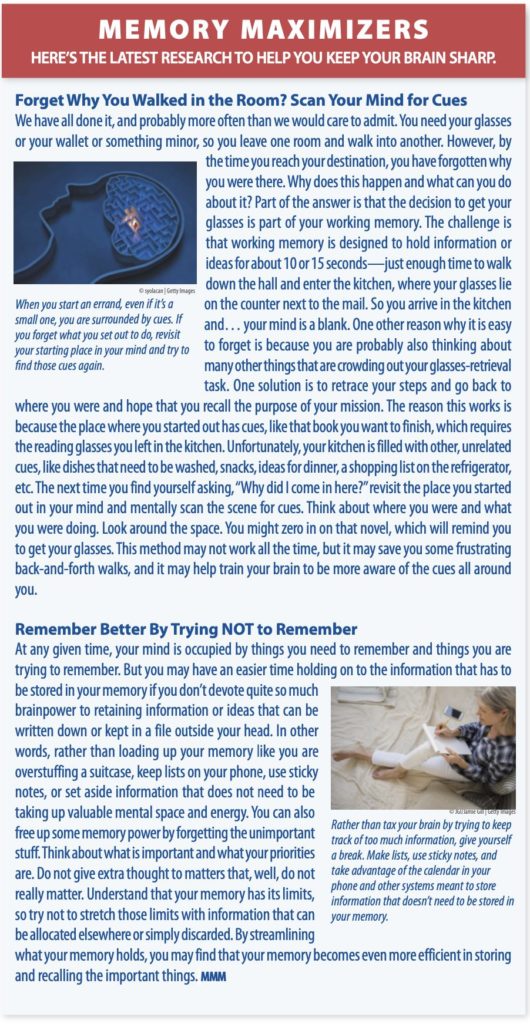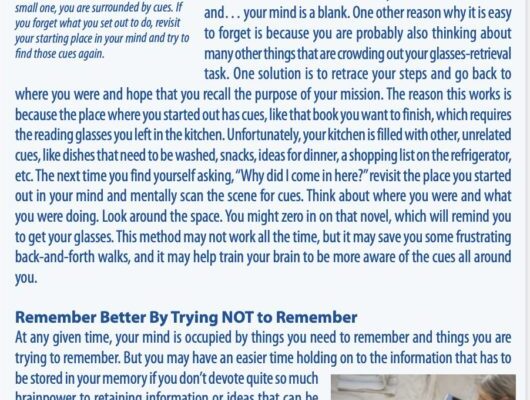Are Those Changes in Memory and Thinking Skills Signs of Dementia or Depression?
On their own, dementia and depression may seem to be very different conditions. Dementia is characterized by profound memory loss and difficulties with concentration, communication, and other brain functions. Depression, on the other hand, is marked by feelings of excessive sadness, hopelessness, and the withdrawal from people and activities you once enjoyed.
For many older adults in particular, the distinction between dementia and depression is not always easily defined. Many changes in mood and thinking skills can be evidence of dementia, depression, or both. Furthermore, having one condition can sometimes accelerate the development of the other.
“Depression and dementia have overlapping symptoms, and this can lead to some confusion as to which might be which when a patient first presents with a complaint,” David Mischoulon, MD, PhD, director of the Depression Clinical and Research Program at Massachusetts General Hospital (MGH). “The distinction between the two conditions is important to make because these are very different illnesses and their management in turn differs significantly, as does their clinical course.”
Making Sense of Symptoms While you may think of depression as primarily affecting a person’s mood and outlook, its symptoms often mirror those seen in individuals starting to deal with dementia. “Cognitive difficulties, including forgetfulness, wordfinding difficulty, and reduced concentration or focus, can be seen in depression as well as in dementia, both early and late in their course,” Dr. Mischoulon says. “Sleep disturbances, mood or personality changes, apathy, guilty feelings, appetite changes, feelings of anxiety or paranoia, psychomotor agitation or slowing, and suicidal ideation are other symptoms observed in both conditions.”
To make an accurate diagnosis, a clinician should do a thorough assessment of the individual, especially if that person is entering the “dementiaprone years,” Dr. Mischoulon adds. He notes that it is always important to realize that both conditions may be present at the same time.
“In those cases, we need to understand which symptoms may be due to which particular illness,” Dr. Mischoulon says. “We also need to consider what medications the patient may be taking. For example, many older patients, and younger ones, for that matter, may take benzodiazepines or other hypnotic/sedative drugs to help them sleep at night or to manage anxiety. These medications, when taken for long periods of time and/or in higher doses, may cause cognitive difficulties similar to those seen with dementia. In those cases, a reduction in dose might be tried to tease out whether the symptoms are due to a drug side effect or due to something else.”
The nature of some symptoms common to both conditions can differ in ways that may help you and your doctor reach the right diagnosis. Disorientation, for example, is more common among people with dementia compared with those who have depression. Similarly, difficulties with writing, speaking, and certain motor skills are less likely to be present in people with depression compared with individuals experiencing dementia. Another distinction is that people who are depressed are more apt to comment on their memory lapses, while those with dementia are often unaware or indifferent to changes in memory.
Getting an Accurate Diagnosis Depression is fairly straightforward to assess through a regular clinical interview. There are diagnostic questionnaires that can be used to characterize the severity of specific symptoms and the overall severity of depression, Dr. Mischoulon explains. “For example, there are clinician-administered scales like the Hamilton Depression Scale, or other scales such as the Patient Health Questionnaire, Item 9 (PHQ-9) or Quick Inventory of Depressive Symptomatology (QIDS) that can quantify depression efficiently in an outpatient setting.”
At MGH, patients are asked to fill out some self-rated forms of this type in advance of their appointments so that the clinician can review them in the electronic record prior to or at the time of the session. “This can make the meetings more efficient and help with diagnosis,” Dr. Mischoulon says. “For assessing dementia, the Mini-Mental State Exam or the Mini-Cog are straightforward to administer in the office setting and have good reliability, at least as an initial indication as to whether the
patient may have certain cognitive deficits. In such cases, more intensive follow-up testing such as neuropsychological testing can help to better characterize specific areas of concern, and potentially aid with the diagnosis.”
He adds that it can be especially helpful to have a relative or spouse of the patient join the doctor and patient in their clinical interview to provide corroborating information and additional details about the individual’s general level of function in their activities of daily living, as well as any significant mood or personality changes. “Getting their perspective can enrich the clinical assessment and help to guide the diagnosis,” Dr. Mischoulon says.
Treatment Options and Limitations
Depression can be treated to a point of full remission, but dementia is a progressive illness that, even when treated aggressively, will inevitably have a downhill course over the longterm, Dr. Mischoulon explains. “At best, we can gently alter the course of dementia,” he says.
Depression in older adults often is treated as it is in younger people. If medications are used, caution needs to be taken, typically with the axiom “start low, go slow”.
“Older patients metabolize drugs slower and are therefore more sensitive to side effects, so starting at a lower dose and increasing it carefully and gradually is prudent,” Dr. Mischoulon says. “Likewise, older patients are more likely to be taking medications for other conditions, and this increases the risk of adverse interactions, excessive sedation through drug synergy, and other problems that may arise.
“Psychotherapies of different sorts are effective for depression in all age groups, and can be recommended to older patients, particularly if avoiding more medication is desired by the patient or advisable due to concerns about side effects,” he adds.

The post Are Those Changes in Memory and Thinking Skills Signs of Dementia or Depression? appeared first on University Health News.


